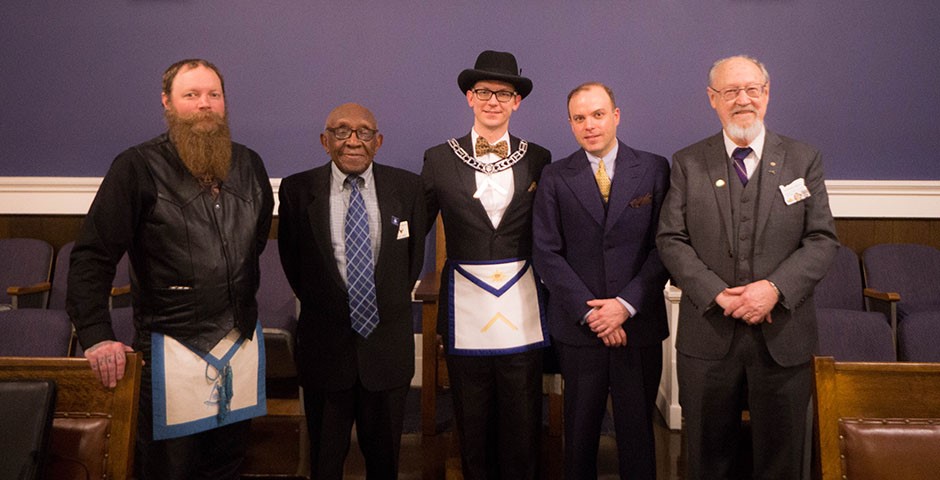Recently the fortunate brethren of Friendship 160 and their esteemed guests were treated to a fascinating historical review presented by WB Dan Gray (Research #198). He wove for us a wonderful true story about an innovative time in Masonry spearheaded by a couple of amazing men – one of whom is Friendship’s own Jack Armstrong. The story moved all of us, and reflected at its core one of the principal virtues of our fraternity: Justice. I’d like to introduce this very subject for your consideration by way of what one might call a not-so-concluding post script to WB Gray’s talk.
There is an ancient Greek term that is usually translated as “Justice”, and that is commonly transposed into our alphabet as “Daikaios”. When the Greeks used this term, it carried the idea of a moral order that was based on fairness, and that was well-established by custom and long tradition. Greek “Justice” was, of course, the principal subject of Plato’s Republic – a solidly thick book that covers a conversation between Socrates and his friends.
Some people (all smarter than me) have argued that the Republic is the single most influential book, after Scripture, in the entire Canon of Western Civilization. It’s very impressive to think that its principal concern was Justice, especially as it relates to the Greek Polis – that incorporated community wherein members came together to set rules, make agreements, settle disputes, and mete out Justice – all in the name of increased Harmony and Prosperity for its members.
Being a community of equals ourselves, and being equally deeply concerned to see the Harmony and Prosperity of all our brothers and Lodges established and flourishing, it seems that we might take a cue from Plato.
When we think about the changes that Masonry has undergone over the ages, and while we consider the changes it faces today as it looks to project itself well into the future, we will do well (I propose) to follow Socrates, and establish all our conversations and deliberations on firm ground – on Justice. Each bold idea or innovative proposal that comes before a Lodge of Masons should always be examined and magnified under the lens of Justice: Is it Just? Is agreeable to our sense of Fairness? Can we claim to be a Just fraternity without its adoption?
A person could spend a lifetime trying to understand Justice and its proper application, yet (as in all human endeavors) never hope to attain so lofty a goal. This little note can’t hope to even introduce the subject thoroughly, yet it is hoped that the seed of an idea has been planted, and that more fruitful discussions will grow from it.
Fraternally,
Kent R Smith
Jr Warden, Friendship #160
“Justice is the end of government. It is the end of civil society. It ever has been and ever will be pursued until it be obtained, or until liberty be lost in the pursuit.” The Federalist, No. 51



I enjoyed your meditations, Bro. Smith. Naturally I was also intrigued by WB Gray’s presentation. I interpreted it as gentle suggestions on how our lodge might proceed, regarding the anti-discrimination clause in our bylaws. And what WB Gray said, seemed to move in two separate directions. On one hand … he lauded persistence in the cause of social justice, the subject of your own posting. On the other hand … WB Gray seemed to recommend doing so tactfully.